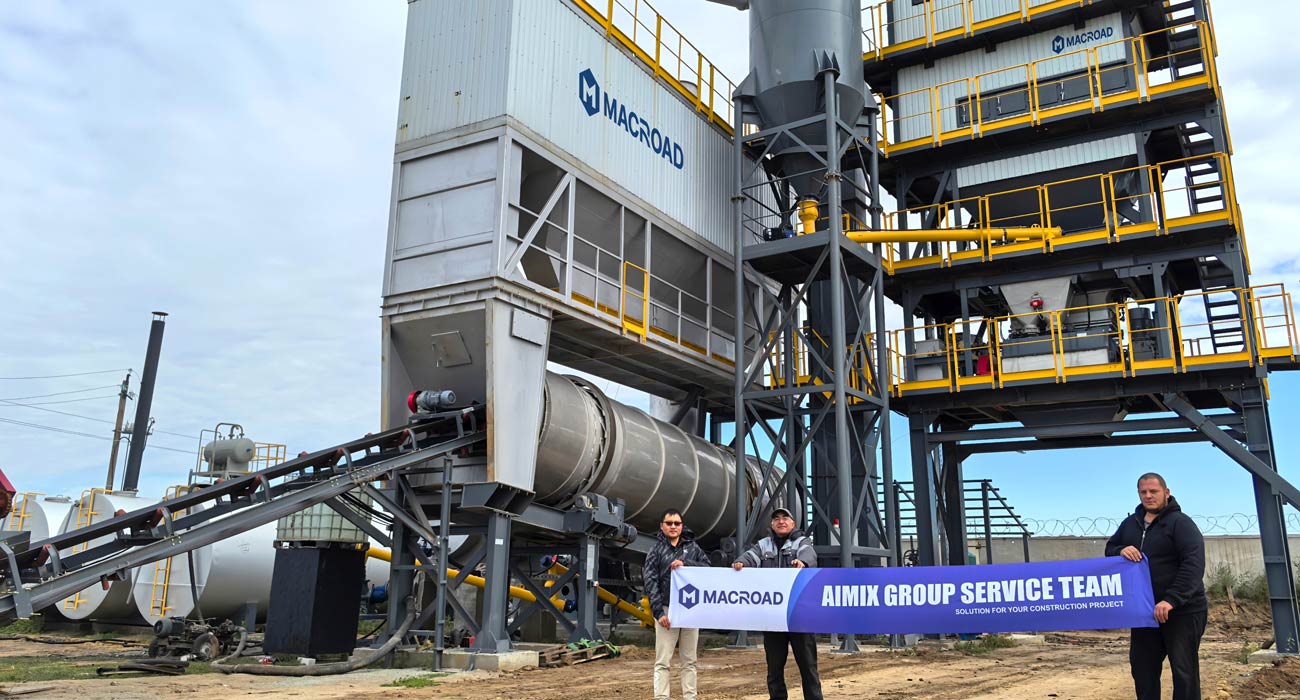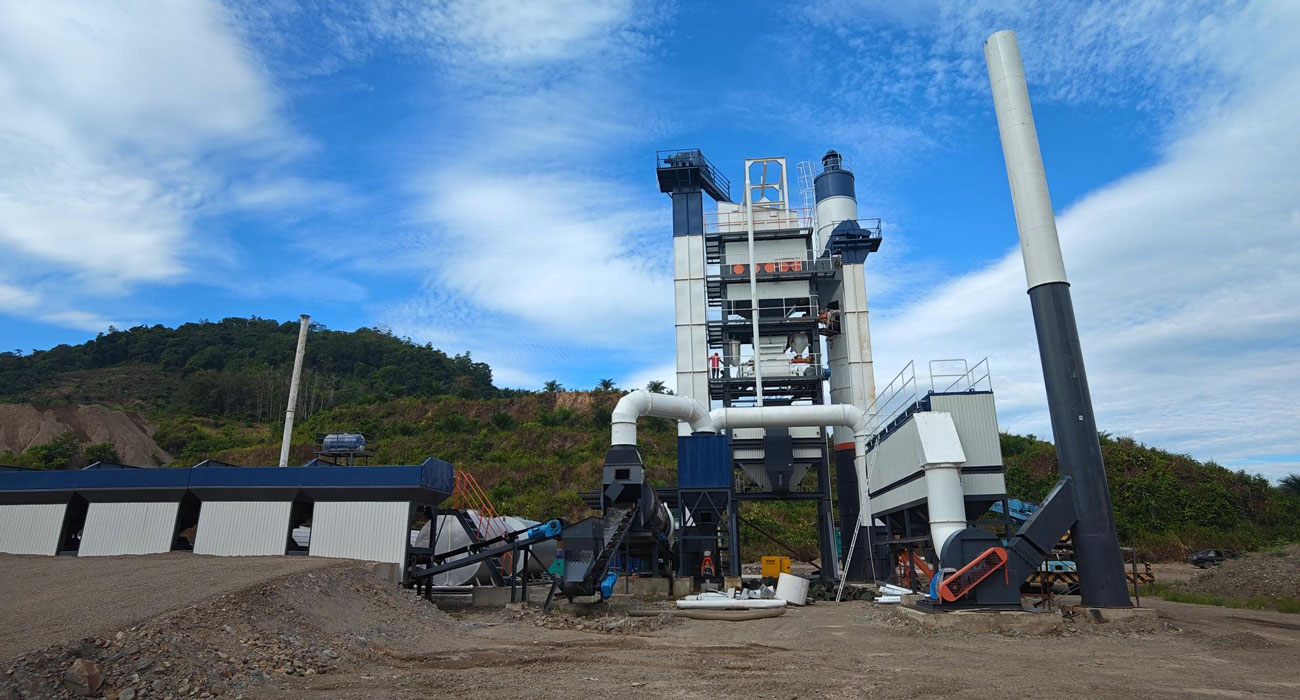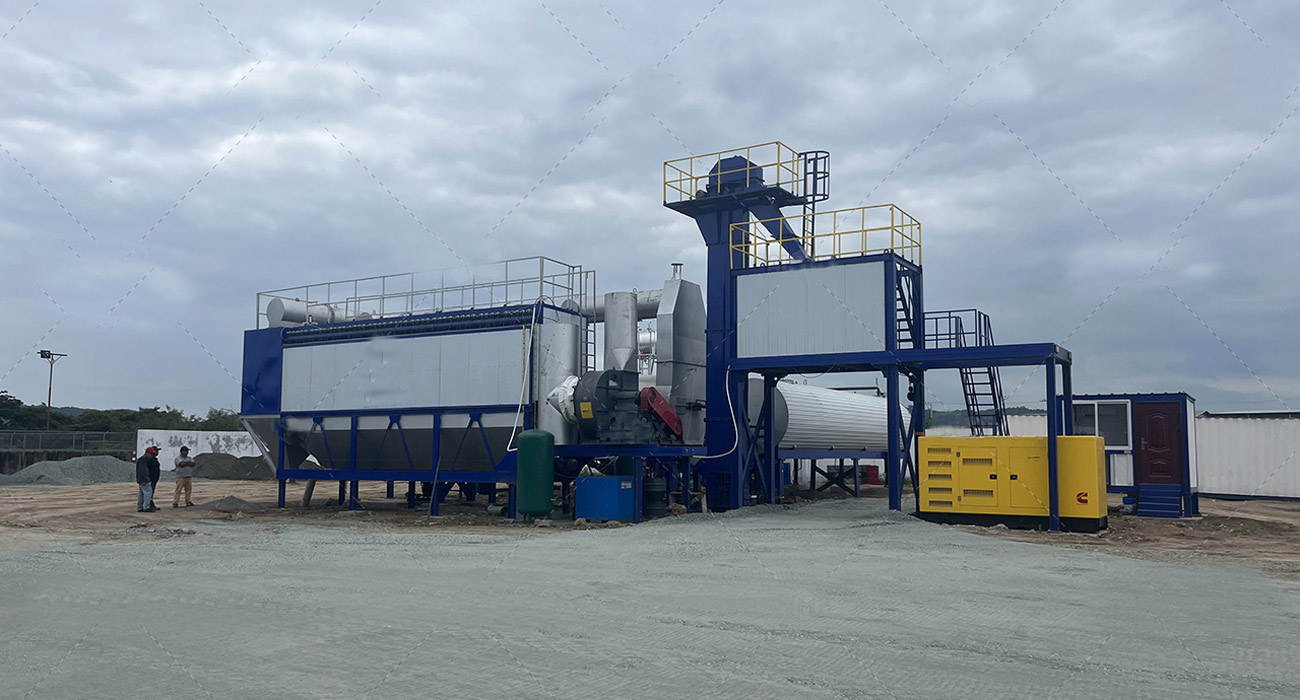In the realm of highway construction, the performance requirements for asphalt mixtures are exceptionally high. Factors like rutting resistance and fatigue resistance are critical to ensuring the longevity and safety of road surfaces. Asphalt plant suppliers play a vital role in adjusting the core configurations of hot mix plants to optimize asphalt production processes. This article explores how these adjustments, including modifier addition systems and precise temperature control devices, are tailored to meet the specific demands of high-performance asphalt mixtures.

Tailored Modifications for High-Performance Asphalt
As highway construction projects often require specialized asphalt mixtures, asphalt plant supplier focus on customizing hot mix plant configurations to improve production efficiency and mixture quality. One common adjustment is the incorporation of advanced modifier addition systems. These systems allow for the precise integration of polymer or other modifiers that enhance the performance characteristics of the asphalt.
For example, to meet the unique requirements of highway surface layers, suppliers may recommend hot mix plants equipped with high-frequency mixing functions. This technology improves the dispersion uniformity of modified asphalt, ensuring that the performance-enhancing additives are evenly distributed throughout the mixture. Such uniformity is crucial for achieving the desired levels of rutting and fatigue resistance, ultimately contributing to the durability and safety of the highway.

Coordinating Temperature Control and Mixing Parameters
In addition to modifier systems, effective temperature control is another critical aspect of optimizing asphalt production. Precise temperature control devices are essential for maintaining the optimal mixing temperatures required for various asphalt formulations. Incorrect temperatures can lead to inadequate mixing, resulting in performance deficiencies in the final product.
The adjustments made by asphalt plant suppliers must coordinate with other parameters, such as gradation design and mixing time. For instance, a well-designed gradation can influence the overall performance of the asphalt mixture, especially in terms of compaction and stability. By aligning the temperature settings and mixing times with the specific gradation design, suppliers ensure that the asphalt mixture achieves its intended performance characteristics.

Ensuring Long-Term Durability Standards
The ultimate goal of these configuration adjustments is to ensure that the asphalt mixture meets the long-term durability standards required for highway construction. By optimizing the production processes through tailored modifications and precise controls, asphalt plant suppliers help operators produce mixtures that can withstand the rigors of heavy traffic and varying environmental conditions.
Furthermore, this synergy between equipment configuration and production parameters enhances the overall quality of the asphalt. The more precisely the components of the hot mix plant are aligned with the performance requirements, the more durable and reliable the final product becomes. This focus on durability not only improves the lifespan of the highway but also reduces maintenance costs, contributing to more sustainable infrastructure development.
Conclusion
Asphalt plant suppliers play a crucial role in optimizing hot mix plant configurations to meet the high-performance requirements of highway construction. Through tailored adjustments such as advanced modifier addition systems and precise temperature control devices, they enhance asphalt production processes, ensuring that the resulting mixtures offer excellent rutting and fatigue resistance. The careful coordination of production parameters, including gradation design and mixing time, further contributes to the long-term durability of asphalt mixtures. Ultimately, these efforts ensure that highways constructed with these optimized mixtures can withstand the demands of heavy traffic and various environmental conditions, paving the way for safer and more sustainable roadways.